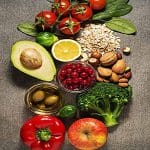Veganism is reshaping global attitudes towards nutrition, health, and sustainability, challenging the long-standing belief that meat is essential for strength and protein. This article debunks the myth that animal products are necessary by highlighting nutrient-rich plant-based protein sources like legumes, grains, nuts, seeds, tofu, and tempeh—all capable of supporting a balanced diet. It also examines how adopting plant-based lifestyles can combat environmental issues such as deforestation and greenhouse gas emissions while delivering health benefits like reduced inflammation and improved athletic performance. Discover how this shift in dietary habits is driving positive change for individuals and the planet alike
Eating meat has long been associated with strength, vitality, and overall health. From a young age, we are taught that meat is an essential part of a balanced diet, providing us with the necessary protein to support our body’s growth and function. However, with the rise of vegetarian and vegan lifestyles, the myth that humans must consume meat for protein has been called into question. Many people believe that a plant-based diet cannot provide the same amount of protein as a diet that includes meat. This idea has been perpetuated by the meat industry and has led to the misconception that giving up meat means sacrificing adequate protein intake. In this article, we will debunk this myth and explore the many plant-based sources of protein that can meet our daily requirements and support a healthy lifestyle. Through scientific evidence and expert opinions, we will dismantle the belief that humans cannot thrive without consuming meat. It is time to challenge the status quo and discover the truth about protein and meat consumption.
Plant-based proteins can be complete.
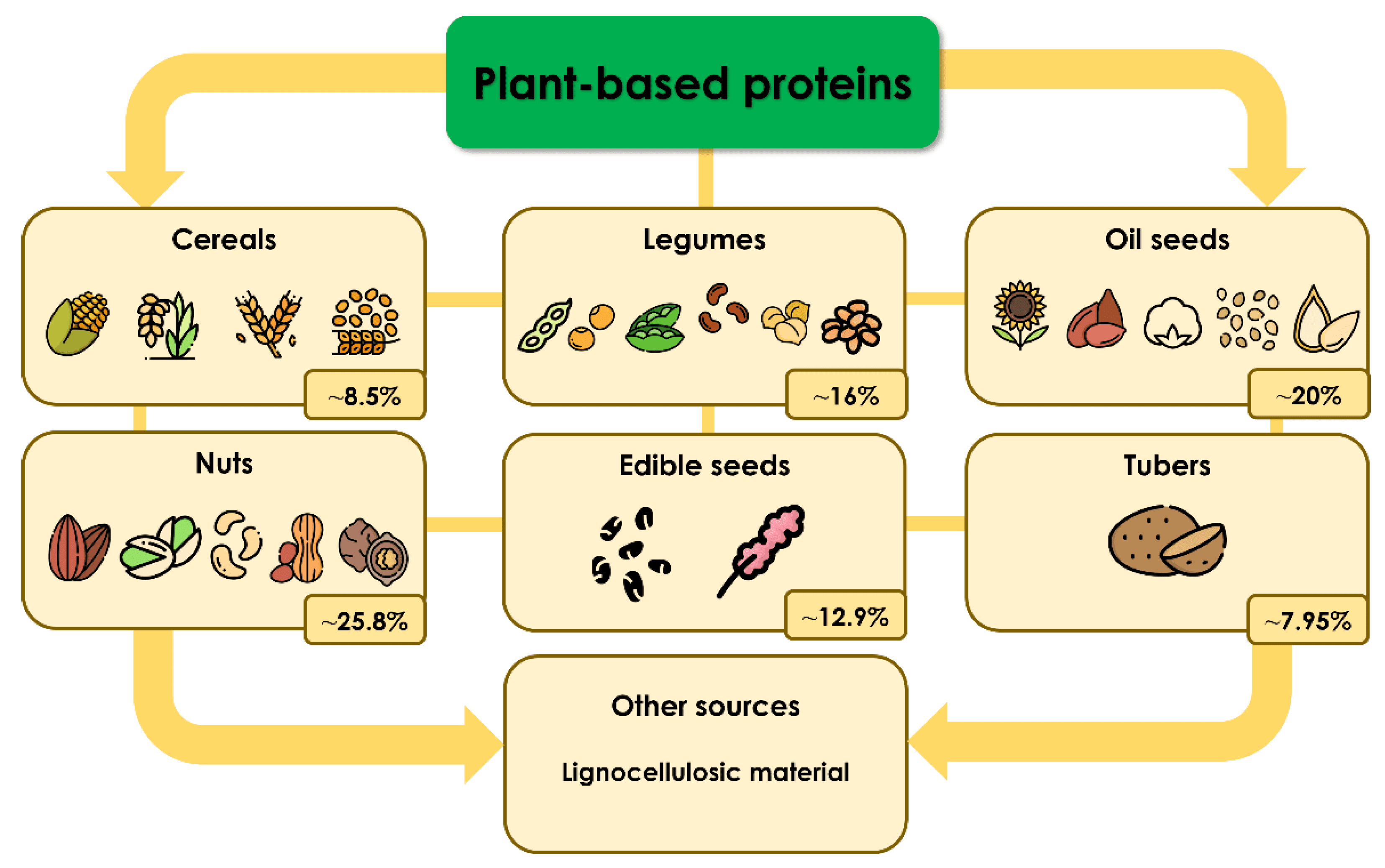
Many people hold the misconception that plant-based proteins are incomplete and cannot provide all the essential amino acids that our bodies need. However, this is a myth that needs to be debunked. While it is true that some plant-based proteins may lack certain amino acids on their own, a well-planned plant-based diet can easily provide all the necessary amino acids. By combining different plant-based protein sources such as legumes, grains, nuts, and seeds, individuals can ensure they are getting a complete profile of amino acids. Additionally, plant-based proteins often come with the added benefits of being lower in saturated fats and cholesterol, while being rich in fiber and various vitamins and minerals. This demonstrates that a balanced plant-based diet can indeed meet the protein needs of humans without the necessity of consuming meat.
Meat-free diets can provide enough.
Meat-free diets can provide enough protein for individuals to meet their nutritional needs. Contrary to popular belief, a diverse range of plant-based protein sources can offer all the essential amino acids required by the human body. By incorporating a variety of protein-rich foods such as legumes, grains, nuts, and seeds into their diet, individuals can ensure they obtain a complete profile of amino acids. Additionally, plant-based proteins often have the added benefit of being lower in saturated fats and cholesterol, while offering an abundance of fiber, vitamins, and minerals. This dispels the misconception that humans must consume meat for protein and highlights the viability of meat-free diets in providing adequate nutrition.
Beans, lentils and quinoa pack protein.
In the quest for plant-based protein sources, beans, lentils, and quinoa emerge as nutritional powerhouses. These versatile ingredients not only pack a substantial amount of protein but also offer a variety of other essential nutrients. Beans, including kidney beans, black beans, and chickpeas, are rich in protein and fiber, promoting satiety and aiding in digestion. Lentils, with their impressive protein content, provide a significant source of iron and folate, important for energy production and maintaining healthy blood cells. Quinoa, often hailed as a complete protein, contains all nine essential amino acids necessary for proper bodily function. Incorporating these plant-based protein sources into one’s diet offers a delicious and nutritious alternative to obtaining protein without the need to rely on meat.
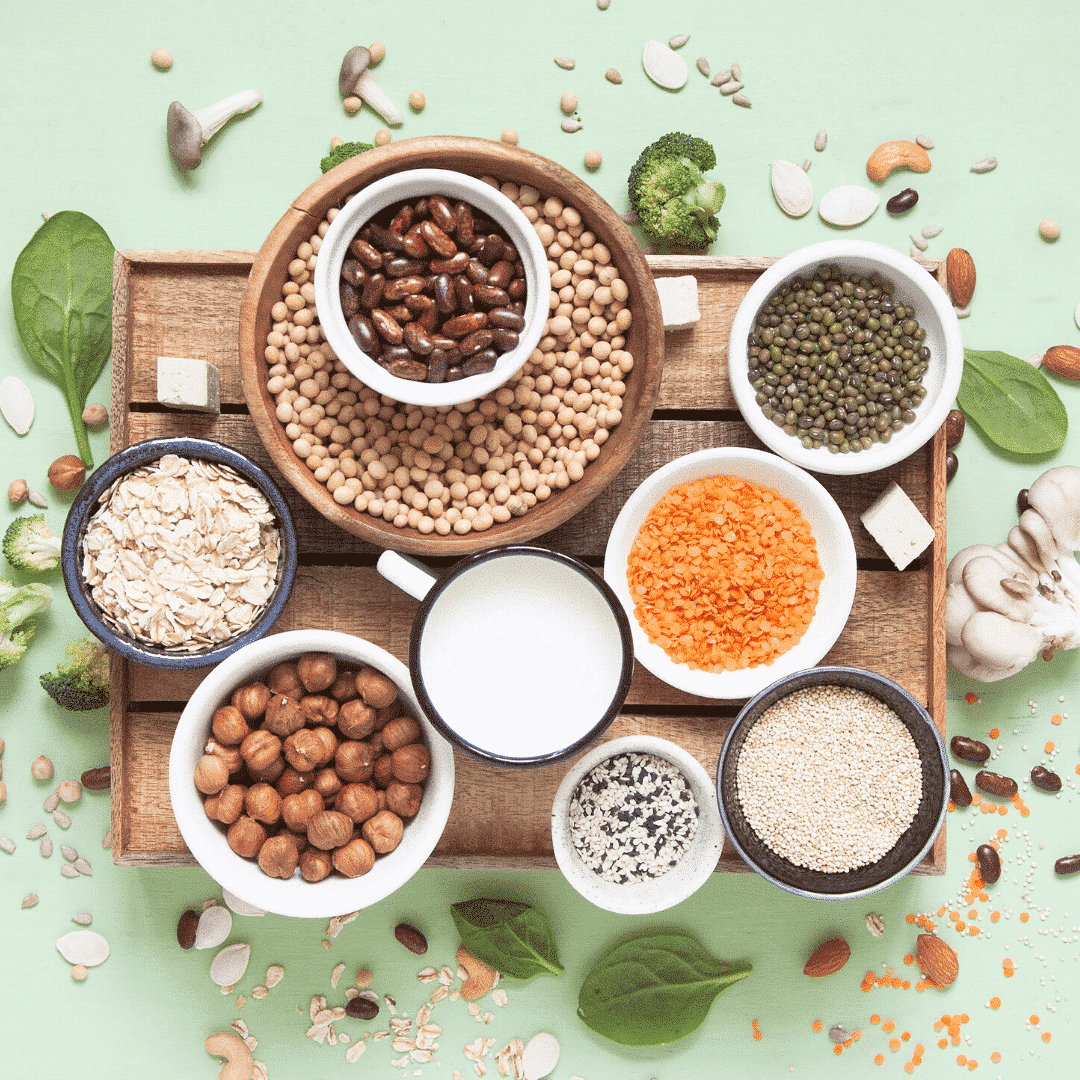
Nuts and seeds are protein-rich.
Nuts and seeds are an often overlooked yet highly valuable source of protein in a plant-based diet. These small but mighty food items are packed with essential amino acids, making them a valuable addition to any protein-rich meal plan. Almonds, for example, offer about 6 grams of protein per ounce, while pumpkin seeds provide approximately 5 grams of protein per ounce. Additionally, nuts and seeds are rich in healthy fats, fiber, and various vitamins and minerals, further enhancing their nutritional profile. Incorporating a variety of nuts and seeds into your meals and snacks can help ensure an adequate intake of protein while enjoying the numerous health benefits they offer.
Tofu and tempeh are great sources.
Tofu and tempeh are highly beneficial sources of protein that can easily replace meat in a plant-based diet. Tofu, made from soybeans, is a versatile ingredient with a mild taste that easily absorbs flavors from marinades and spices. It is rich in essential amino acids and provides about 10 grams of protein per 3.5-ounce serving. Tempeh, on the other hand, is a fermented soy product that offers a firmer texture and a slightly nutty flavor. It contains a similar amount of protein as tofu but also provides additional nutrients like fiber and probiotics. Both tofu and tempeh can be incorporated into a variety of dishes, such as stir-fries, salads, and sandwiches, making them excellent alternatives for those looking to reduce their meat consumption while still meeting their protein needs.
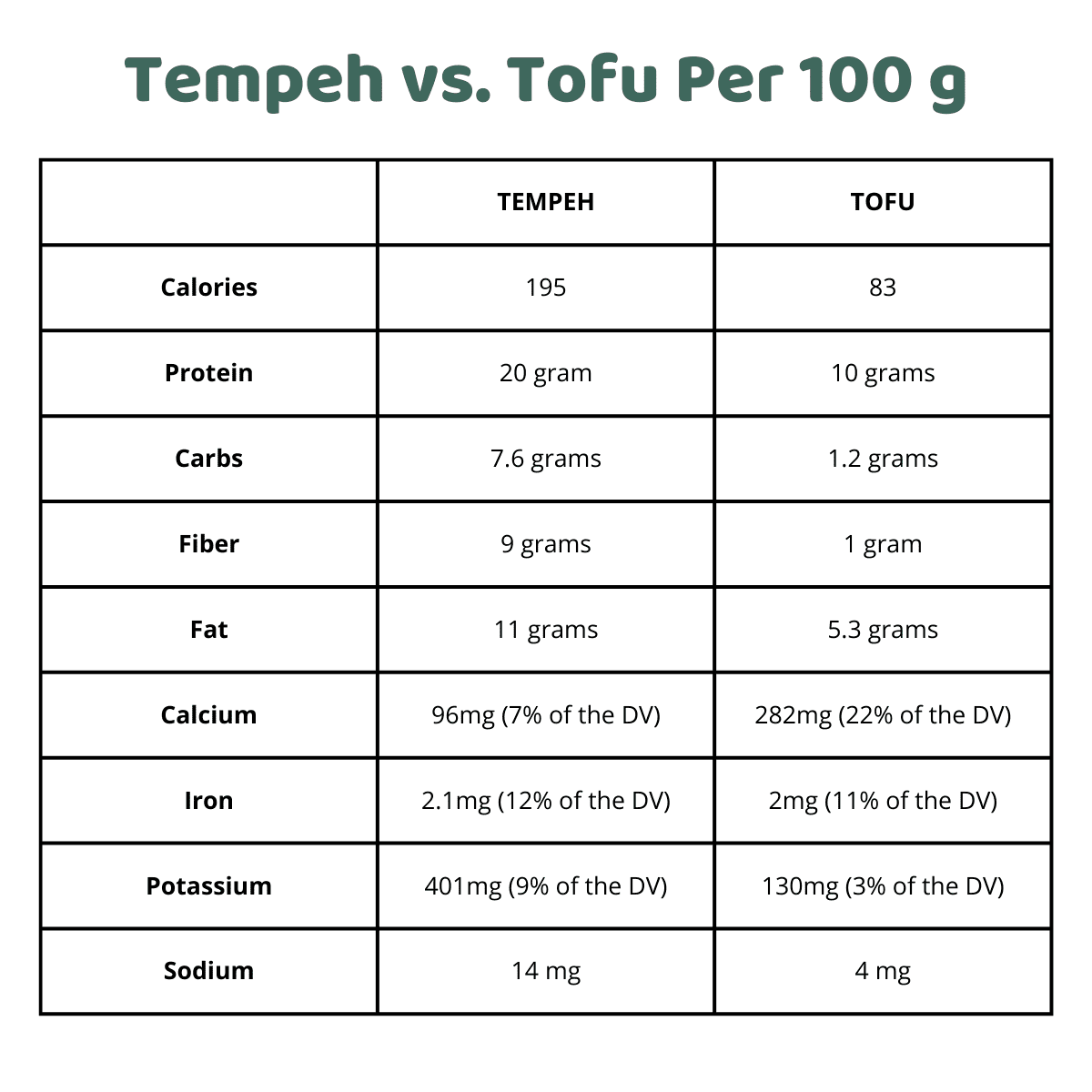
Vegetables can also provide protein.
Contrary to popular belief, protein is not exclusively found in animal-based sources. Vegetables, too, can provide a significant amount of protein to support a well-rounded diet. Legumes, such as lentils, chickpeas, and black beans, are excellent sources of plant-based protein. They offer a range of essential amino acids and can be easily incorporated into soups, stews, salads, or even as a meat substitute in dishes like veggie burgers. Additionally, certain vegetables like broccoli, spinach, and Brussels sprouts contain notable amounts of protein per serving. While they may not provide as high a protein content as animal products, incorporating a variety of vegetables into your meals can contribute towards meeting your protein requirements while enjoying the numerous health benefits associated with a plant-based diet.
Protein deficiency is rare today.
It is widely acknowledged among health professionals that protein deficiency is rare in today’s society. With a diverse and accessible selection of plant-based protein sources available, individuals can easily meet their protein needs without relying solely on meat consumption. The notion that humans must consume meat to obtain sufficient protein is a myth that has been debunked by scientific evidence. A well-balanced plant-based diet can provide all the essential amino acids required for optimal health and muscle function. Incorporating a variety of protein-rich foods such as legumes, tofu, tempeh, quinoa, and nuts into meals ensures an adequate protein intake, supporting overall wellness without the need for animal products.

Animal agriculture harms the environment.
Animal agriculture poses significant environmental challenges that cannot be overlooked. The intensive production of meat, dairy, and eggs contributes to deforestation, water pollution, and greenhouse gas emissions. The clearance of forests to create space for livestock farming not only destroys habitats but also reduces the Earth’s capacity to absorb carbon dioxide. Additionally, the large amounts of manure generated by factory farms release methane, a potent greenhouse gas that significantly contributes to climate change. The excessive use of water for animal agriculture further strains our already limited water resources. The negative impact of animal agriculture on the environment is undeniable and calls for a shift towards more sustainable and plant-based food systems.
Eating less meat can reduce inflammation.
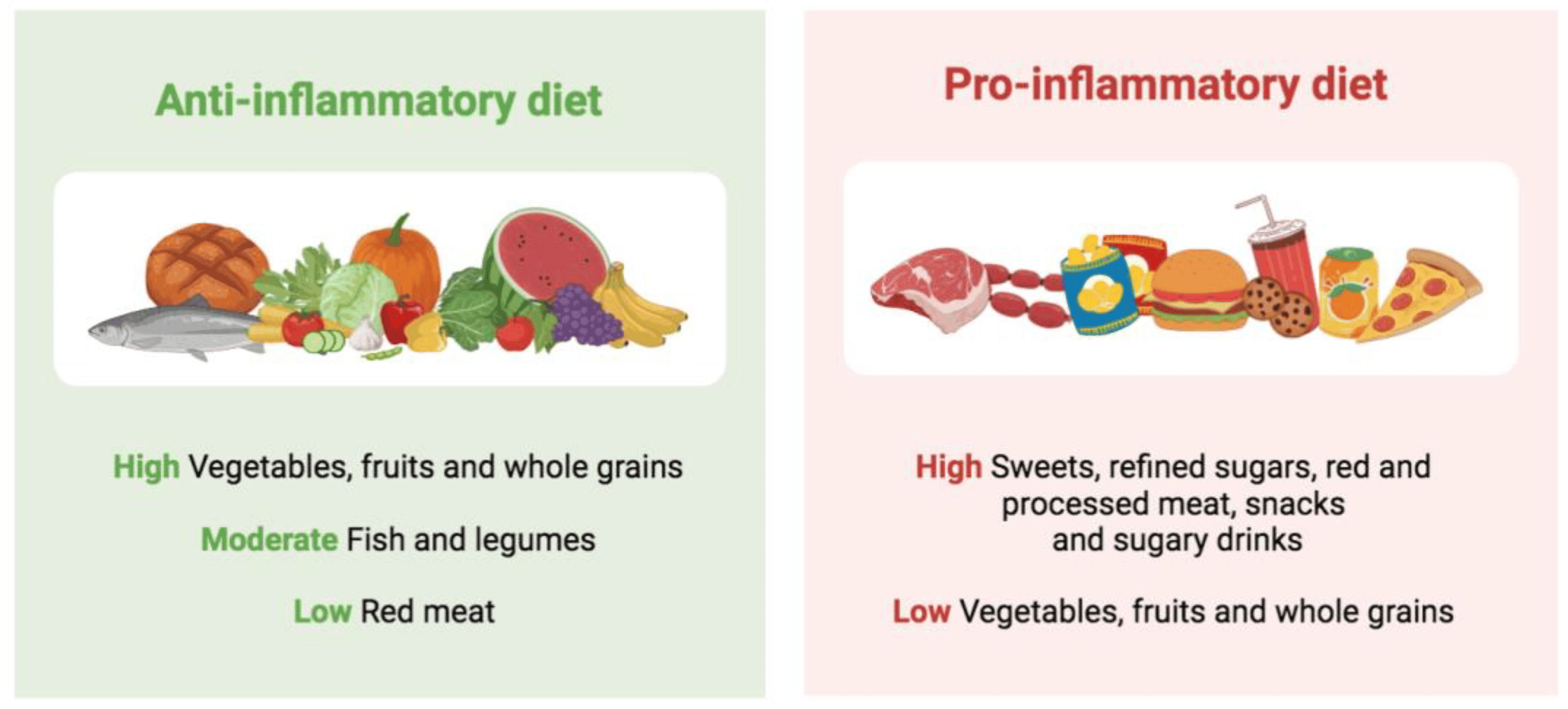
Reducing the consumption of meat has been associated with numerous health benefits, including a reduction in inflammation. Inflammation is a natural response by the immune system to protect the body against injury and infection. However, chronic inflammation can lead to various health conditions, such as heart disease, diabetes, and certain types of cancer. Studies have shown that a plant-based diet, rich in fruits, vegetables, whole grains, and legumes, can help lower levels of inflammation markers in the body. This is believed to be due to the anti-inflammatory properties of the nutrients found in plant-based foods, such as antioxidants and phytochemicals. By incorporating more plant-based options into our diets and reducing our reliance on meat, we can potentially decrease inflammation and promote better overall health.
Many athletes thrive on plant-based diets.

It is a common misconception that athletes need to consume meat in order to meet their protein requirements and perform at their best. However, many athletes have successfully thrived on plant-based diets, proving that it is possible to obtain all the necessary nutrients without relying on animal products. Plant-based sources of protein, such as beans, lentils, tofu, and quinoa, are not only rich in protein but also packed with other essential nutrients like fiber, vitamins, and minerals. In fact, plant-based proteins can provide a wide range of amino acids necessary for muscle repair and growth. Additionally, plant-based diets have been shown to improve cardiovascular health, reduce inflammation, and enhance recovery, all of which are crucial for athletes looking to optimize their performance. The success of these athletes challenges the myth that humans need to eat meat for protein and highlights the potential benefits of adopting a plant-based diet in athletic endeavors.
In conclusion, the myth that humans need to eat meat for protein has been thoroughly debunked. As we have seen, there are plenty of plant-based sources of protein that can provide all the essential amino acids our bodies need. With the rising popularity of vegetarian and vegan diets, it is clear that humans can thrive on a plant-based diet. It is important to educate ourselves and others about the truth behind this myth and make informed decisions about our food choices. By incorporating a variety of plant-based protein sources into our diets, we can not only meet our protein needs, but also improve our overall health and reduce our impact on the environment.
FAQ
Is it true that humans can obtain all the necessary protein from plant-based sources alone?
Yes, it is true that humans can obtain all the necessary protein from plant-based sources alone. Plant-based proteins can provide all the essential amino acids required by the human body. Sources such as legumes, tofu, tempeh, quinoa, and certain grains are excellent plant-based protein options. However, it is important for individuals following a plant-based diet to ensure they are consuming a variety of plant-based protein sources to meet their protein needs and to consider factors such as bioavailability and proper food combinations to optimize protein digestion and absorption.
What are some common misconceptions about the amount and quality of protein found in plant-based foods?
A common misconception is that plant-based foods lack sufficient protein and that animal products are the only reliable source. However, numerous plant-based foods such as legumes, quinoa, tofu, tempeh, and seitan are rich in protein. Another misconception is that plant-based proteins are of lower quality compared to animal proteins. While plant proteins may have lower levels of certain essential amino acids, consuming a varied diet that includes a combination of plant-based protein sources can provide all the necessary amino acids. Additionally, plant-based proteins offer other health benefits like being low in saturated fat and cholesterol, high in fiber, and rich in essential nutrients.
How do plant-based protein sources compare to animal-based protein sources in terms of nutritional value?
Plant-based protein sources can be just as nutritionally valuable as animal-based protein sources. While animal-based proteins may contain all essential amino acids in higher quantities, many plant-based proteins also provide a complete amino acid profile. Additionally, plant-based proteins are typically lower in saturated fat, cholesterol, and calories compared to animal-based proteins. They also often contain beneficial nutrients like fiber, antioxidants, and phytochemicals. Overall, a well-balanced plant-based diet can provide all the necessary protein and nutrients for a healthy lifestyle, while also offering potential benefits for heart health and reducing the risk of chronic diseases.
Are there any potential health risks associated with relying solely on plant-based protein for protein intake?
While a plant-based protein diet can provide adequate protein intake, there are potential health risks if it is not well-planned. Plant-based proteins may lack certain essential amino acids, leading to deficiencies if not properly balanced. Additionally, some plant proteins contain anti-nutrients, such as phytates and lectins, which can impair nutrient absorption and cause digestive issues. However, these risks can be mitigated by consuming a variety of plant-based protein sources, combining different types of plant proteins, and ensuring adequate intake of essential nutrients through a well-balanced diet. Consulting with a healthcare professional or registered dietitian can help ensure proper nutrition on a plant-based protein diet.
What are some examples of plant-based foods that are rich in protein and can provide all the essential amino acids needed by the human body?
Some examples of plant-based foods that are rich in protein and can provide all the essential amino acids needed by the human body include quinoa, tofu, tempeh, lentils, chickpeas, black beans, chia seeds, hemp seeds, and spirulina. These foods are not only great sources of protein but also offer a range of other nutrients, making them excellent choices for those following a plant-based diet.


